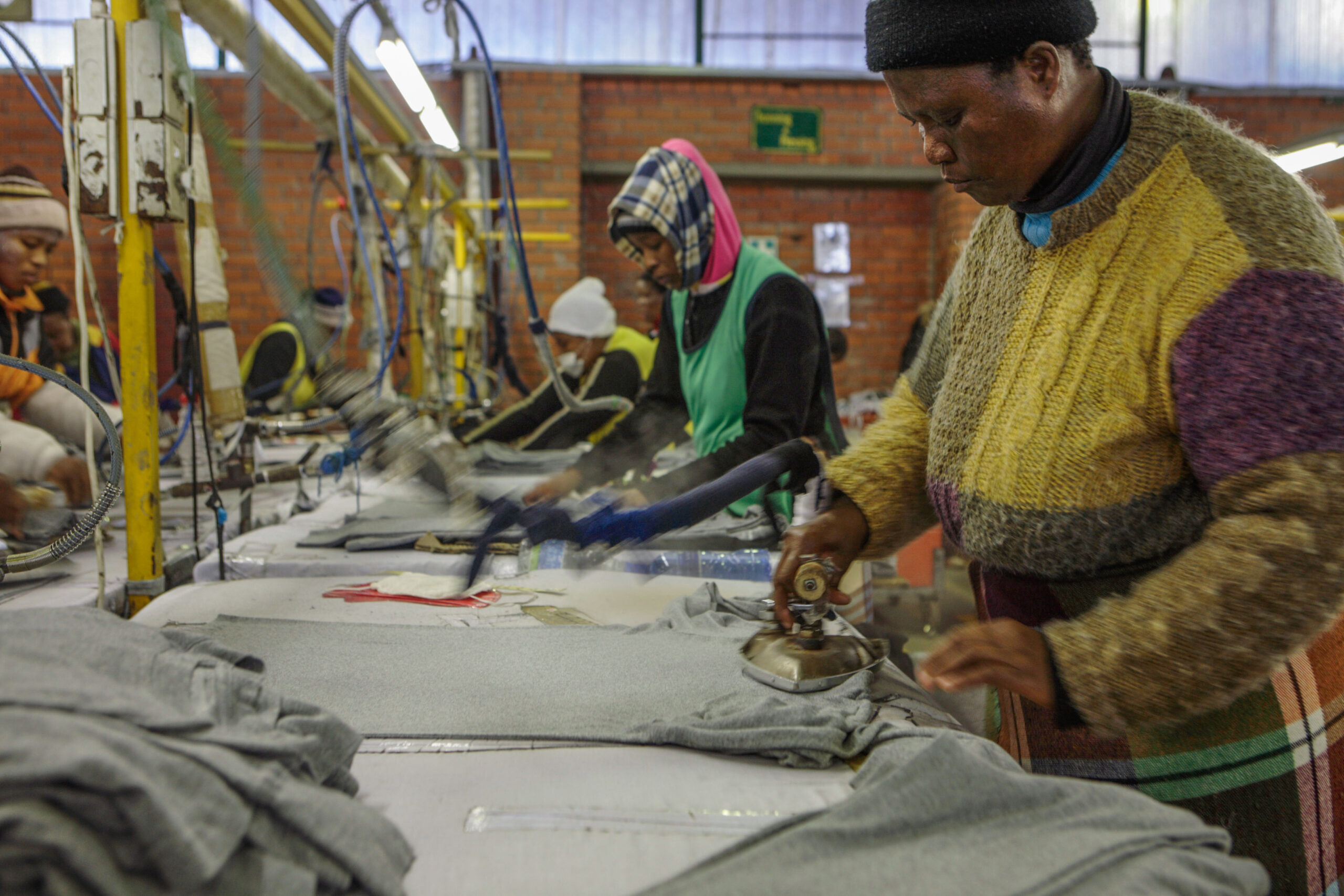Photo of textile workers in Lesotho Maseru Shining Centuary Textiles by John Hogg courtesy of the World Bank.
U.S. Tariff Policy Neglects Africa
Clumsy implementation of tariff policy subjects nations like Lesotho, Kenya, and South Africa to economic duress.
A defining feature of President Trump’s suspended tariff plan, rolled out as “Liberation Day,” was the universality of its impact. Every world nation and territory was assigned a blanket tariff on imports to the United States of at least 10 percent, the only exceptions being countries already sanctioned by the United States or already recently tariffed. The percentage would be determined by the ratio of the country’s trade imbalance with the United States without regard for what might be causing the imbalance in the first place.
Due to the sweeping nature of the policy, nations and territories that warranted special consideration were neglected, to absurd results.
The highest tariff Trump assigned to any country on “Liberation Day” was assigned to Lesotho. The small, landlocked country in Southern Africa is little larger than the state of Massachusetts and only a third as populous. In his March press conference, President Trump referred to Lesotho as a country “nobody has ever heard of.” Its per capita domestic product is 80 times less than that of the United States, but it has become highly dependent on a growing textiles industry and its exports to the United States. Between textiles and diamonds, Lesotho’s trade with the United States amounted to $237 million, over 10 percent of the country’s GDP.
Understandably, Lesotho, a country that the World Bank classifies as lower middle-income with nearly half its population living under the poverty line, has less use for U.S.-made goods.
While the U.S. textile import market (worth over $100 billion) is unlikely to register the loss of Lesotho goods (no more than $200 million), the loss of U.S. business could be devastating to Lesotho.
Maseru-based independent economic analyst Thabo Qhesi told Reuters about the effects of a Trump tariff: “The 50 percent reciprocal tariff introduced by the U.S. government is going to kill the textile and apparel sector in Lesotho.” Three quarters of textiles in Lesotho are exported to the United States and removing that sector’s source of income has cascading consequences. “Then you are having retailers who are selling food. And then you have residential property owners who are renting houses for the workers. So this means if the closure of factories were to happen, the industry is going to die and there will be multiplier effects,” Qhesi said. “So Lesotho will be dead, so to say.”
The African bloc as a whole is likely to suffer from the blanket tariff approach by the Trump Administration. Several African nations have for decades been beneficiaries of the African Growth and Opportunity Act (AGOA), a U.S. trade initiative that has provided duty-free access to American markets. In September 2025, that act is set to expire, and African nations were depending on its renewal. The imposition of new tariffs now puts the renewal of AGOA into question.
South Africa, Africa’s most industrialized economy, faces a 31 percent tariff, threatening its automotive and agricultural exports. Madagascar, known for its vanilla exports, is contending with a 47 percent tariff.
Even Kenya, which faces the minimum 10 percent tariff on its exports to the United States, is not likely to absorb the shock lightly. Countries across the Global South are in the midst of a debt crisis and Kenya is no exception. An attempt to increase taxes in Kenya was met with civil unrest from its disillusioned youth, and after a week of bloodshed, the Kenyan government backed down.
Compounding that, the United States’ dismantling of USAID ended of billions of dollars of direct aid across the continent, and with the U.S. AIDS/HIV health initiative (known as PEPFAR) now in jeopardy, African governments are contending with the possibility of having to redirect more government spending to needed life-saving treatments.
As of this writing, the majority of President Trump’s planned tariffs are on a ninety-day pause that began April 10. To avoid the tariffs, all nations seeking to negotiate exceptions will have until July 9 to reach an agreement. The smallest countries like Lesotho that most rely on their trading relationships with the United States are at a particular disadvantage, both in negotiating with the administration and in competing for its attention.
Those 90 days also give African nations time to build and strengthen trade ties with other global partners, notably China and the European Union.
When asked about the Trump Administration’s tariffs, Lesotho’s Trade Minister Mokhethi Shelile struck a defiant note: “We will diversify and explore other markets,” he affirmed. “We are not going to die.”

